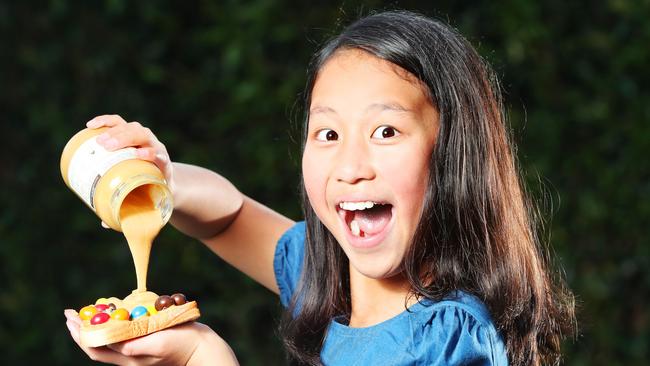Research gives hope for new, targeted treatments for allergies
Melbourne researchers have solved a long-running mystery of how a trial “switched off” children’s deadly peanut allergies.
Victoria
Don't miss out on the headlines from Victoria. Followed categories will be added to My News.
Australian researchers investigating how allergies can be “switched off” have made a world-first “breakthrough”, solving a seven-year mystery.
It is expected to pave the way for new, targeted treatments after researchers from the Murdoch Children’s Research and Telethon Kids Institutes uncovered the key immunological changes that occurred in children successfully treated for their peanut allergy.
Sixty two children took a probiotic alongside gradually increasing peanut immunotherapy doses, PRT120, for 18 months as part of a Melbourne trial that was published in 2015.
74 per cent of the children – compared to four per cent in the placebo group – achieved remission.


But the immune changes that enabled treatment success were unclear and a lack of funding prevented the children’s samples from being analysed, until now.
The new study, published today in the journal Allergy, found the gene networks of the children who entered remission in the 2015 trial were rewired.
Lead researcher, Murdoch Children’s Professor Mimi Tang said the analysis was a “breakthrough in our understanding of how allergies can be switched off”.
“Unless you know how something’s working, you’re sort of moving forward a bit blind,” she said.
She said they investigated how “genes talk to each other” – compared to previous research which had mostly studied levels of gene expression alone – and identified “profound differences” after successful treatment.
“We found dramatic changes in gene to gene communication,” she said.
“The communications between allergy genes were completely switched off, they just stopped talking to each other.”
She said “all the chats” were between a “whole new network” of genes that supported a tolerant response.
“It’s just the first time it’s been shown,” she said.
She said the fact the treatment “comprehensively collapsed the allergy network” gave them confidence the immune changes would last.
“We have fundamentally rewired the immune response against peanuts,” she said.
The work follows another study by the team which found the doses of peanuts, even without the probiotic used in 2015, could be “equally effective”.
The probiotic’s benefit was to minimise side effects.
Prof Tang said she was “especially excited” for what it could mean for her patients.
“It’s so heartbreaking to see how their lives are terribly affected,” she said.
“We’ve made important steps into understanding how to switch off these allergies.
“I do hope that this will now bring us one step closer to finding a treatment, a long-term solution.”
Stella Lee, nine, who used to be at risk of anaphylaxis, has already benefited from research and has been in remission for four years since participating in a Murdoch Children’s trial.
Her mum Ju Lee Ng said they had previously avoided travel to countries that use lots of peanuts in food, including her home of Malaysia, and the trial allowed them to holiday worry-free.
“It was great, she had the freedom to enjoy different types of foods (overseas),” she said.
“She can now dig in and enjoy a bag of peanuts M & Ms.
“(Pre-remission) there was always the fear that she would have a reaction.”




